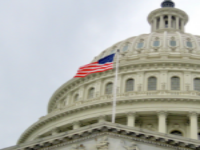PORTS + POLITICS: Ports Rise to Meet Challenges During Pandemic

By Congressman Alan Lowenthal (CA-47)
As the co-chair of the Congressional Ports Opportunity, Renewal, Trade and Security (PORTS) Caucus, I know that our national supply chains begin at ports, and that our seaports have a unique ability to enrich and unleash our national, regional and local economies. This has always been clear to me. Beyond the raw numbers, I have seen the human-scale impacts of ports, too, such as the creation of a well-paying job for a first-generation American or the opening of a new gateway of commerce so a tenth-generation American farmer can continue farming.
The COVID-19 crises brought these stories into even sharper focus. I, and other members of the PORTS Caucus, witnessed countless examples of how ports have risen to meet the challenges presented during the coronavirus pandemic.
In my district, California’s 47th, the Port of Long Beach moved record numbers of cargo while navigating the demands of the unprecedented global pandemic. Despite the pressing business and logistical hurdles they faced due to cargo surges, the Port of Long Beach also stepped up to meet the needs of their neighbors; hosting drive-thru food distribution events, COVID-19 testing on the port’s premises, and more.
I know that there are many other examples of American seaports that answered the call as millions of Americans suffered through the trials of the last year. What ports were able to accomplish this past year is generating remarkable levels of enthusiasm and interest on Capitol Hill.
Although the COVID-19 crisis is ongoing and the long-term impacts on the nation’s economy remain to be seen, there are still other present and persistent perils our nation must face. No trial looms larger than climate change. Impacts from climate change comprise the greatest challenge our generation must face. There is overwhelming scientific evidence of human-caused climate change, and every minute we wait to take concrete action makes solutions both more difficult and more expensive.




